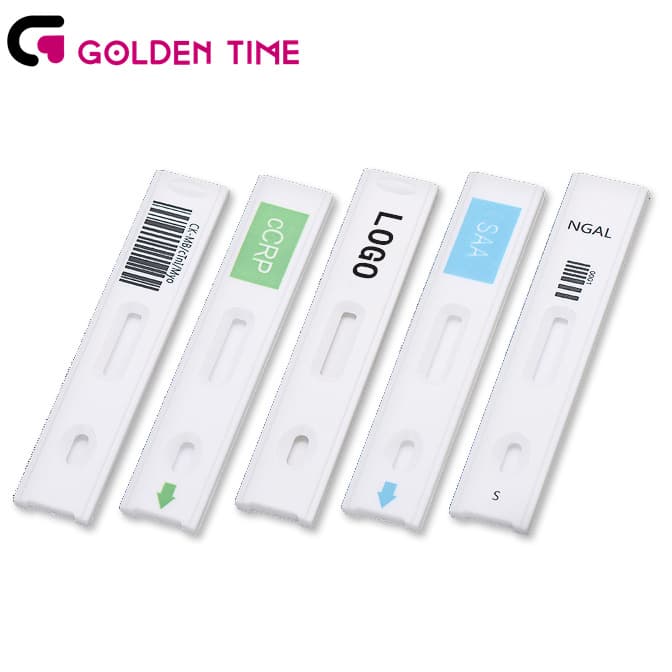ต.ค. . 14, 2024 07:48 Back to list
Understanding the Importance of Antigen Testing in Disease Detection and Prevention
The Role and Importance of Antigen Tests in Health Care
In recent years, particularly during the COVID-19 pandemic, antigen tests have gained significant attention and become a vital tool in public health management. These tests, which detect specific proteins from the virus, offer a rapid and convenient means of diagnosing infections, making them instrumental in controlling the spread of diseases.
Understanding Antigen Tests
Antigen tests are a type of medical diagnostic tool that identifies the presence of specific antigens related to a pathogen, such as a virus or bacterium. Unlike PCR tests, which detect the genetic material of the virus, antigen tests are designed to return results much quicker, often within 15 to 30 minutes. This speed can facilitate prompt decision-making and treatment, especially in outbreak situations.
The principle behind antigen testing is relatively straightforward. When a sample, typically taken from a nasal swab, is mixed with a reagent that reacts with the antigen, a positive result will indicate that the specific pathogen is present in the sample. This rapid nature of antigen tests helps in screening and identifying individuals who may be contagious, thus allowing for swift isolation and management of cases.
Advantages of Antigen Testing
One of the primary advantages of antigen tests is their quick turnaround time. Patients can receive their results almost immediately, which is particularly beneficial in settings like schools, workplaces, and hospitals. Furthermore, antigen tests are generally more cost-effective than their PCR counterparts, making them more accessible in various health care settings, especially in resource-limited environments.
Another significant benefit is the ease of use
. Many antigen tests can be administered outside of traditional health care facilities, allowing for widespread testing in communities. This capability has played a crucial role in mass screening efforts, which are essential during any outbreak to identify and contain infections swiftly.antigen test

Limitations and Challenges
Despite their advantages, antigen tests do have limitations. One major concern is their sensitivity compared to PCR tests. Antigen tests may yield false negatives, particularly in individuals with low viral loads or in the early stages of infection. As such, a negative result from an antigen test, especially in symptomatic individuals or in the context of a known exposure, may sometimes require confirmation through a more sensitive PCR test.
Moreover, the accuracy of antigen tests can vary depending on the disease prevalence in the community. During periods of low infection rates, the likelihood of false positives may increase, which can lead to unnecessary anxiety and potentially misguided public health responses. Hence, it is crucial for health care providers and public health officials to interpret results in conjunction with clinical evaluations and epidemiological data.
The Future of Antigen Testing
As we move forward, the role of antigen testing is expected to expand. Ongoing research and development are focused on improving the accuracy and reliability of these tests. Innovative technologies, including at-home testing kits and novel testing methods, continue to emerge, potentially increasing the uptake and application of antigen tests in various health settings.
In addition, the integration of antigen tests into broader public health strategies is essential. These tests can complement existing testing protocols, aiding in surveillance and monitoring of infectious diseases. Public health campaigns that educate people about the benefits and limitations of antigen testing will also be vital to ensure effective implementation.
Conclusion
Antigen tests have emerged as a crucial component in the arsenal against infectious diseases. Their rapid turnaround time, ease of use, and cost-effectiveness position them well for widespread application in public health strategies. However, awareness of their limitations is essential for accurate interpretation and effective use. As we refine and innovate these testing methods, antigen tests are likely to remain integral to our approach in managing public health, ensuring timely responses to outbreaks, and ultimately saving lives.
-
Highly Accurate hCG Pregnancy Test Strips - 5 Min Results
NewsAug.02,2025
-
Premium Empty ABS Plastic Cassettes: Durable & Lightweight Storage
NewsAug.01,2025
-
Accurate Cocaine (Coc) Rapid Test Kit | Fast & Reliable Detection
NewsJul.31,2025
-
Accurate HCG Pregnancy Test Strips | Fast Home Use Kit
NewsJul.31,2025
-
Reliable Early Pregnancy Test Kit Supplier - Multi Plastic Cassette Options
NewsJul.30,2025
-
Transferrin Rapid Test Cassette – Reliable Tumor Marker Detection
NewsJul.29,2025

